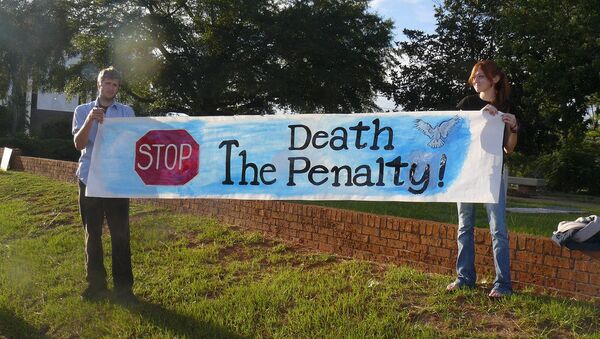WASHINGTON (Sputnik) — On Tuesday, the high court struck down as unconstitutional a controversial part of Florida law, saying it did not give juries an adequate voice in deciding whether defendants are sentenced to die.
"At the very least, we shouldn’t have any executions until we get this decision sorted out," Floridians for Alternatives to the Death Penalty Executive Director Mark Elliott told Sputnik.
In March, the Florida legislature is expected to vote on a measure that would bring the state in compliance with the Supreme Court’s ruling, Elliott said.
But the hope of many anti-death-penalty groups is that the ruling will force Florida to take a critical look at its use of capital punishment.
"Florida has one of the highest rates of wrongful convictions in death-row sentences," National Coalition to Abolish the Death Penalty Executive Director Diann Rust-Tierney told Sputnik.
"This is an opportunity for the people of Florida and the rest of the country to encourage a conversation about whether it’s time to let go of the death penalty altogether," Rust-Tierney said.
Advocacy groups claim that one in four death-row convicts in Florida are later exonerated.
"You can free an innocent man from prison, but you can never, never, free an innocent man from the grave," Juan Melendez, who spent more than 17 years on Florida’s death row before being exonerated and released, said in a statement.
The state now requires just seven members of a 12-person jury to recommend execution for a judge to deliver a death sentence.
Since 1972, 26 death row inmates in Florida have been released because they were either acquitted at a retrial, charges were dropped or they were given an absolute pardon by the governor, according to the Death Penalty Information Center.



